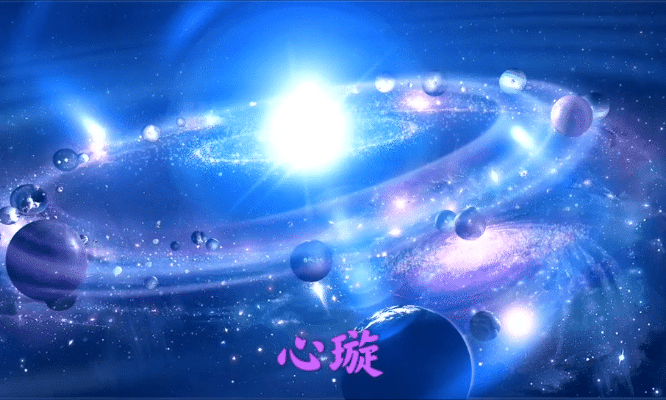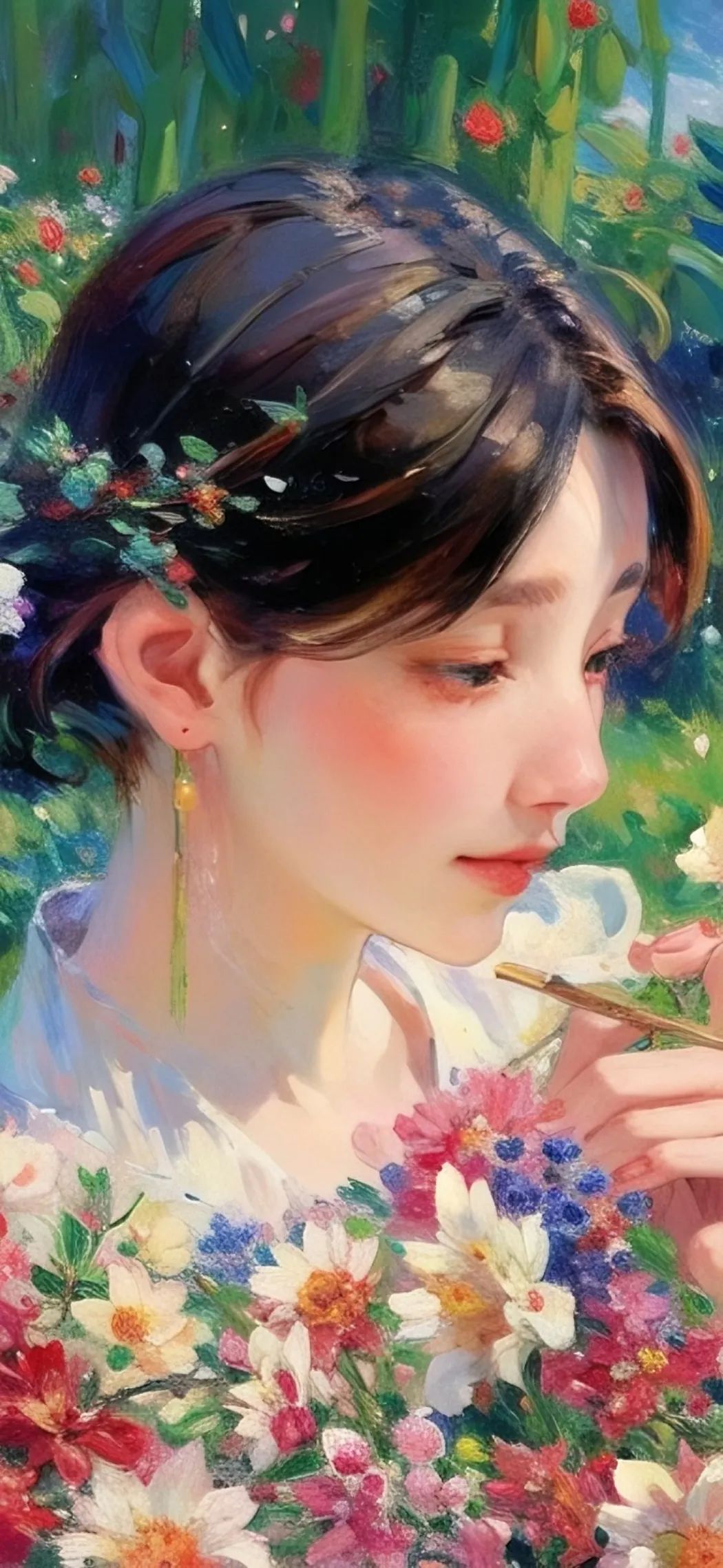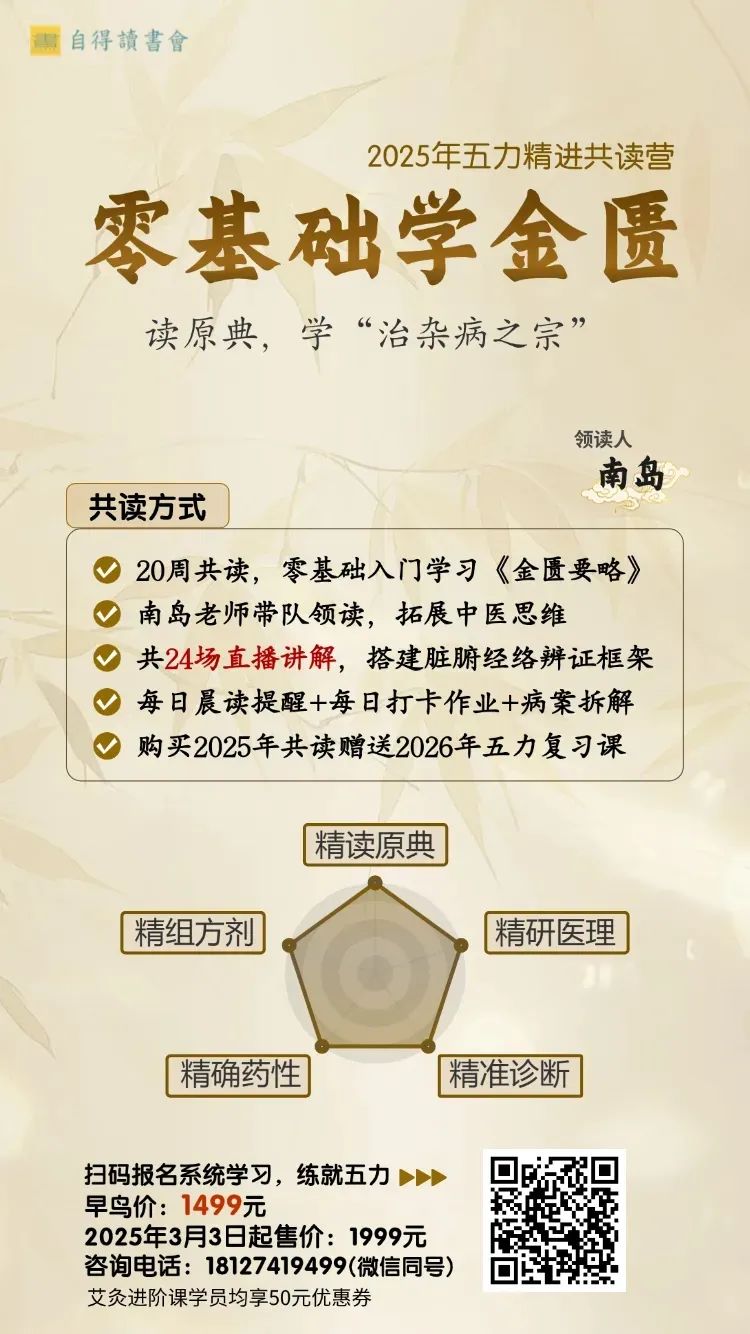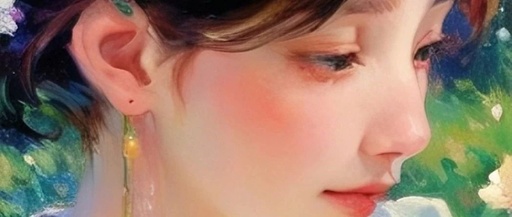

Click the blue text above to discover a more beautiful world of the heart


Day 1101
Written by: Heart Language Heart Wish

#
TRAVEL



1
【Original Text】
Question: What does it mean for a skilled doctor to treat diseases before they manifest? The teacher replied: To treat diseases before they manifest means that when one sees a disease of the liver, they know that the liver affects the spleen, and thus they should first strengthen the spleen. If the spleen is strong throughout the four seasons and is not affected by evil, then there is no need to tonify it. An average doctor does not understand this transmission; they see a liver disease and only treat the liver without addressing the spleen.
A skilled doctor treats diseases before they manifest. For example, when they see a patient with liver disease, they know that liver disease can affect the spleen, so they should first strengthen the spleen. If the spleen is strong throughout the four seasons and is not affected by evil, they do not need to tonify the spleen.
The difference between an average doctor and a skilled doctor is that the average doctor does not understand that this disease can transmit, so they only treat the liver without realizing the importance of strengthening the spleen.
We can learn from Master Wu Bingcai’s explanation: treating diseases before they manifest mainly refers to treating the organs before disease occurs, with three core aspects: preventing disease before it occurs, treating diseases early when they arise, and preventing the transmission of existing diseases.

2
【Original Text】
For liver diseases, sour herbs are used to tonify, bitter herbs are used to assist, and sweet herbs are used to balance. Sour enters the liver, bitter enters the heart, and sweet enters the spleen. The spleen can harm the kidneys; if kidney qi is weak, water cannot flow. If water cannot flow, then heart fire becomes excessive, which can harm the lungs; if the lungs are harmed, then metal qi cannot flow, and if metal qi cannot flow, then liver qi becomes excessive, leading to self-healing of the liver. This is the essence of treating liver diseases with tonification. If the liver is deficient, this method is used; if it is excessive, it is not used. The classics say: “Deficient and excessive, tonify the insufficient, reduce the excessive,” which is the meaning here. The same applies to other organs.
Sour tonifies the liver, but it does not necessarily mean tonifying the liver. For example, when treating liver wind, we use Wumei Wan (Mume Pill), which does not tonify the liver but rather calms the wind and disperses the evil, eliminating the pathogenic qi. In this case, it should be considered as attacking the evil with sour.
The subsequent explanation about sour entering the liver, bitter entering the heart, and sweet entering the spleen is convoluted and unnecessary.
Clinical facts show that liver diseases easily transmit to the spleen, especially in cases of liver excess. Whether it is in Jing or Chengmen, the essence is correct; in reality, one should predict whether the liver is excess or deficient to determine if it transmits to the spleen.
The method of treating liver diseases by tonifying the spleen is excellent; if the liver is deficient, this method is used; if it is excessive, it is not used. This is actually the opposite; it should be used for liver excess, not for deficiency. If it is deficient, one should tonify the liver.
The phrase “deficient and excessive” is missing a “no”. The quoted text may have been damaged by insects.
“Tonify the insufficient, reduce the excessive” is correct.
The statement about the spleen harming the kidneys and the weakness of kidney qi is entirely incorrect. When treating liver and spleen diseases, there is no need to go around in circles from the heart to the spleen, to the kidneys, then back to the lungs, and finally to the liver.
Seeing liver disease and knowing it transmits to the spleen, one should first strengthen the spleen. This has clinical guidance significance and is very good. However, the subsequent explanation is incorrect.
So how should we understand this?
Master Wu Bingcai proposed based on clinical practice how to strengthen the spleen in liver diseases:
1. For liver excess, one must drain the liver while caring for the spleen. Liver excess must be drained. However, one must also care for the spleen. Draining liver herbs, such as Long Dan Cao (Gentian Root) and Huang Qin (Scutellaria), are bitter and cold, which can damage our spleen and stomach qi. Therefore, when prescribing large doses, the spleen and stomach may not be able to handle it. Especially in cases of liver excess, it can easily transmit to the spleen, even if the spleen is not currently deficient. When using this draining method, it should be done in small amounts and frequently; it is better to use a smaller dose than to overdose.
2. Spleen deficiency requires strengthening the spleen. Herbs that strengthen the spleen, such as Dang Shen (Codonopsis), Bai Zhu (Atractylodes), and Si Jun Zi Tang (Four Gentlemen Decoction), should have clear evidence of spleen deficiency, such as a soft right pulse, weak right pulse, or loose stools; strengthening the spleen should only be combined with treatment methods when there is evidence of spleen deficiency.
3. For liver deficiency, nourishing the earth can nourish the wood. When there is liver deficiency, combining a bit of spleen tonification can help the liver recover. This is because the liver has a significant relationship with blood; simply tonifying the liver with herbs that enter the blood must be combined with some qi herbs. Moreover, when tonifying, if the appetite is poor, it is necessary to combine some spleen tonifying and moving herbs.
4. Strengthening the spleen often requires simultaneous treatment of the liver and spleen. Strengthening the spleen often requires soothing the liver. Qi-regulating herbs such as Chen Pi (Tangerine Peel), Mai Ya (Barley Sprout), Gu Ya (Rice Sprout), Zhi Ke (Bitter Orange), and Bai Shao (White Peony) can be included. When tonifying the spleen, it is often necessary to move the spleen, and many of these herbs also enter the liver, so it is said that tonifying the spleen often requires simultaneous treatment of the liver and spleen.
5. Caring for the spleen does not mean simply tonifying. Strengthening the spleen does not necessarily mean simply tonifying; if the spleen cannot transform and transport, tonifying will not be effective. Over-tonifying when the appetite is poor can instead increase the burden on the spleen.

3
【Original Text】
Humans are endowed with the five constants and grow due to the influence of wind and qi. Although wind and qi can give life to all things, they can also harm all things, just as water can float a boat but can also capsize it. If the five organs are in harmony, the person will be peaceful; if external evil winds invade, many will perish. There are countless diseases, but they can be classified into three categories: first, when the meridians are invaded by evil, entering the organs, causing internal issues; second, when the limbs and nine orifices are blocked, causing external skin issues; third, when injuries occur from animals or sharp objects. By detailing these, we can understand the causes of diseases.
Wind can give life to all things; here, wind represents righteous qi, while harmful wind represents pathogenic qi. The growth due to wind means that, for example, when spring arrives, people should align with the growth of spring. Only righteous qi can promote growth, while pathogenic qi can harm all things.
From the perspective of the human body, the main righteous qi is the liver qi. Spring qi corresponds to the liver, which is a physiological phenomenon.
Countless diseases can be classified into three categories—this classification is not very sophisticated.

4
【Original Text】
If a person can cultivate caution and not allow evil winds to disturb the meridians, and treat the meridians before they transmit to the organs, then they can be treated; if the limbs feel heavy and stagnant, then guiding, breathing exercises, acupuncture, and topical applications should be used to prevent the nine orifices from being blocked. Furthermore, one should not violate the laws of nature or suffer from animal or sharp object injuries; one should not exhaust oneself in sexual activities, and should moderate the temperature and flavors of food, ensuring that the body does not weaken, as this would allow diseases to enter the pores. The pores are where the three jiaos connect with the original qi, and the principles refer to the texture of the skin and organs.
When treating the meridians, if they have not yet transmitted to the organs, they can be treated. This is an example of treating diseases early.
If the limbs feel heavy and stagnant, then guiding, breathing exercises, acupuncture, and topical applications should be used to prevent the nine orifices from being blocked. This also falls under the category of treating diseases early.
If one can cultivate caution and not allow evil winds to disturb the meridians, this falls under the prevention of diseases before they occur. Furthermore, one should not violate the laws of nature or suffer from animal or sharp object injuries; these are all parts of disease prevention.
One should not exhaust oneself in sexual activities, and should moderate the temperature and flavors of food, ensuring that the body does not weaken, as this would allow diseases to enter the pores.
This also includes preventing the transmission of existing diseases, as seen in the example of liver disease affecting the spleen, where one should first strengthen the spleen.
In other words, to prevent diseases before they occur, one should avoid overworking and staying up late.

5
【Original Text】
Question: When a patient has a complexion change, what does it indicate? The teacher replied: If the tip of the nose is blue and there is abdominal pain, it indicates death from cold. If the abdomen is cold and painful, it also indicates death. If the tip of the nose is slightly black, it indicates water retention. If the complexion is yellow, it indicates cold in the chest; if it is white, it indicates blood loss. If it is slightly red and out of season, it indicates death; if the eyes are perfectly round, it indicates convulsions, which are untreatable. Furthermore, blue indicates pain, black indicates labor, red indicates wind, yellow indicates constipation, and bright colors indicate fluid retention.
This section discusses observation diagnosis.
If the tip of the nose is blue, it indicates abdominal pain or cold pain in the abdomen. Blue often indicates cold; thus, the nose, which is associated with the spleen, indicates that there is cold in the abdomen. This does not necessarily mean death.
If the tip of the nose is slightly black, it indicates water retention. Water retention can be indicated not only by the nose but also by the eyes and overall skin color appearing dark.
If the complexion is yellow, it indicates cold in the chest; this explanation is somewhat unclear. Yellow often indicates spleen qi deficiency, which can also cause a yellow complexion. If the entire body is not very yellow, but only the tip of the nose is yellow, then it is accurate; if the whole body is yellow, including the nose, it is not accurate.
If the entire complexion is pale, it indicates blood loss. Blood loss refers to significant bleeding.
If there is significant bleeding, such as heavy menstruation, and the complexion is still slightly red, it indicates loss of yang; at this point, the yang qi is about to collapse, and the complexion may appear slightly red, which is a sign of impending death. In this case, pulse diagnosis is crucial; whether the pulse is thin or large is an important distinction.
After bleeding, if the eyes are wide open and the person appears dazed, it indicates liver wind; this does not necessarily mean a death sign.

6
【Original Text】
The teacher said: If a patient breathes with a shaking shoulder, it indicates a problem in the heart; if they draw in breath from the chest, it indicates a cough; if they breathe with an open mouth and short breaths, it indicates lung atrophy.
Shaking the shoulders means raising the shoulders. A firm feeling in the heart area indicates a blockage in the chest, which can occur in various diseases.
If they draw in breath from the chest, it indicates a cough. This implies a sense of shortness of breath, not just a cough.
If they breathe with an open mouth, it indicates lung atrophy. This condition may be accompanied by some pain, referred to as lung atrophy.
This emphasizes the distinction between deficiency and excess.

7
【Original Text】
The teacher said: If the breath is shallow and rapid, the disease is in the middle jiao; if it is excessive, it should be drained immediately; if it is deficient, it should not be treated. If it is in the upper jiao, the breath is rapid; if it is in the lower jiao, the breath is distant; these are all difficult to treat. If the breath is shaking and trembling, it is untreatable.
The teacher said: If the breath is shallow and rapid, the disease is in the middle jiao; this indicates that the breath is momentarily interrupted. Normally, if the breath is taken fully, the frequency would be lower. However, if the breath is interrupted, it indicates a blockage in the middle jiao. This is often due to diaphragm obstruction from water retention.
Immediate drainage is required for excess conditions, while deficiency conditions are more challenging to treat, as the spleen and kidneys must be able to receive qi; primarily, if the kidney qi is insufficient, it is difficult to treat.
If it is in the upper jiao, the breath is rapid, indicating a clear inability to descend. If it is in the lower jiao, the breath is distant, indicating difficulty in drawing breath deeply, as if trying to draw air from a very far place. This indicates kidney qi deficiency, a deficiency condition.

8
【Original Text】
The teacher said: If the pulse at the cun (寸) position is floating, it indicates that the disease is in the exterior; if it is floating at the chi (尺) position, it indicates that the disease is internal. If there is low back pain and stiffness, it indicates shortness of breath and extreme conditions.
Note: This can be understood as the relative floating and sinking of the cun and chi pulses; even if the pulse is not floating, the chi pulse can still be slightly higher than the cun pulse.
Of course, it is essential to analyze the pulse pattern in conjunction with the symptoms to understand the underlying causes.
The pulse diagnosis in the Essentials of the Golden Chamber has a characteristic that should be understood as the relative floating and sinking of the cun and chi pulses.
Assuming that all pulses are not floating, the chi pulse can still be slightly higher than the cun pulse, indicating that the chi pulse is floating compared to the cun pulse.
In spring, the body’s yang qi is generally rising; if the chi pulse is higher than the cun pulse, it indicates that the yang qi is unable to rise, suggesting that the disease is internal. In this case, low back pain, stiffness, and shortness of breath should be considered as signs of internal issues, such as using Bu Zhong Yi Qi Tang (Tonify the Middle and Augment the Qi Decoction).
Conversely, if both cun pulses are floating compared to both chi pulses, this indicates a relatively normal state, as the normal pulse pattern should float slightly from the deeper position.
If the cun pulse is floating alone or the chi pulse is floating alone, it indicates an exterior condition. For example, a floating cun pulse may present with symptoms such as sore throat, cold, sneezing, runny nose, and chills.

9
【Original Text】
Question: What does it mean when the classics say, “The yang of the extremities acts alone”? The teacher replied: This means there is yang without yin, hence it is called the yang of the extremities.
Yang of the extremities refers to the presence of yang alone.The yang of the extremities acting alone indicates a lack of yin, which may suggest a death sign.

10
【Original Text】
Question: There are conditions of “not yet arrived but already here,” “arrived but not here,” “arrived but not leaving,” and “arrived but excessive.” What do these mean? The teacher replied: After the winter solstice, at midnight of the Jiazi (甲子) cycle, the lesser yang begins to rise, marking the beginning of yang’s emergence, and the weather becomes warm. If the Jiazi has not yet arrived but the weather is warm, this is “not yet arrived but already here”; if the Jiazi has arrived but the weather is not warm, this is “arrived but not here”; if the Jiazi has arrived but the weather remains very cold, this is “arrived but not leaving”; if the Jiazi has arrived and the weather is warm like in summer, this is “arrived but excessive.”
The previous “arrived” refers to the solar term, while the latter refers to the weather, such as temperature and precipitation.
For example, during the Jingzhe (惊蛰) solar term:
What does “not yet arrived but already here” mean? It means that it has not yet reached the Jingzhe solar term, but thunder has already started; this is “not yet arrived but already here.”
What does “arrived but not here” mean? It means that the Jingzhe solar term has arrived, but there is still no thunder. The solar term has arrived, but the weather has not followed.
There are also conditions of “arrived but not leaving” and “arrived but excessive.” For example, after the Jingzhe solar term, if it continues to rain heavily and thunder frequently, this is “arrived but not leaving.” If it is already the Jingzhe solar term and people start wearing short sleeves, this is “arrived but excessive.”
Note: The solar term is a fixed time, while the weather is a series of results, including temperature and precipitation.
In summary, some solar terms arrive with the corresponding weather; some solar terms arrive without the corresponding weather; some solar terms arrive, and the weather follows; and some solar terms arrive, but the weather moves on to the next solar term.

11
【Original Text】
The teacher said: If the pulse is floating at the cun position, the disease is in the exterior; if it is floating at the chi position, the disease is internal. If there is low back pain and stiffness, it indicates shortness of breath and extreme conditions.
Note: This can be understood as the relative floating and sinking of the cun and chi pulses; even if the pulse is not floating, the chi pulse can still be slightly higher than the cun pulse.
Of course, it is essential to analyze the pulse pattern in conjunction with the symptoms to understand the underlying causes.
The pulse diagnosis in the Essentials of the Golden Chamber has a characteristic that should be understood as the relative floating and sinking of the cun and chi pulses.
Assuming that all pulses are not floating, the chi pulse can still be slightly higher than the cun pulse, indicating that the chi pulse is floating compared to the cun pulse.
In spring, the body’s yang qi is generally rising; if the chi pulse is higher than the cun pulse, it indicates that the yang qi is unable to rise, suggesting that the disease is internal. In this case, low back pain, stiffness, and shortness of breath should be considered as signs of internal issues, such as using Bu Zhong Yi Qi Tang (Tonify the Middle and Augment the Qi Decoction).
Conversely, if both cun pulses are floating compared to both chi pulses, this indicates a relatively normal state, as the normal pulse pattern should float slightly from the deeper position.
If the cun pulse is floating alone or the chi pulse is floating alone, it indicates an exterior condition. For example, a floating cun pulse may present with symptoms such as sore throat, cold, sneezing, runny nose, and chills.

12
【Original Text】
Question: The classics say: “The yang of the extremities acts alone,” what does this mean? The teacher replied: This refers to having yang without yin, hence it is called the yang of the extremities.
Yang of the extremities refers to the presence of yang alone.The yang of the extremities acting alone indicates a lack of yin, which may suggest a death sign.

13
【Original Text】
Question: If the pulse is deep, large, and slippery, what does this indicate? The teacher replied: A deep pulse indicates excess, while a slippery pulse indicates qi. When excess qi clashes, if blood qi enters the organs, it indicates death; if it enters the bowels, it indicates recovery. This is referred to as sudden collapse. What does this mean? The teacher replied: If the lips and mouth are blue and the body is cold, it indicates death; if the body warms up and there is a slight sweat, it indicates recovery.
A patient with this pulse pattern has a deep, large, and slippery pulse, indicating excess and qi. This is a case of sudden collapse.
After feeling the pulse, if it is deep, large, and slippery, how do we determine the prognosis?
If the lips and mouth are blue and the body is cold, it indicates a closed condition. Internal closure and external collapse are later referred to as stroke, indicating that this is a death sign.
If the body gradually warms up and the hands become slightly warm, and there is a slight sweat, this indicates recovery.
Although the pulse may be deep, large, and slippery, the presence of other symptoms is crucial for determining the prognosis.

14
【Original Text】
Question: If the pulse is absent, it indicates death; if it enters the organs, it indicates recovery. What does this mean? The teacher replied: This is not just one disease; it applies to all diseases. For example, if a skin ulcer starts from the mouth and spreads to the limbs, it can be treated; if it starts from the limbs and spreads to the mouth, it cannot be treated. Diseases on the outside can be treated, while those that enter the interior indicate death.
The absence of a pulse means that it cannot be felt suddenly.
Determining the prognosis involves analyzing whether yin and yang can harmonize and whether the qi and blood can circulate smoothly between the interior and exterior.
For example, in the case of a skin ulcer, if it starts from the mouth and gradually spreads to the limbs, this is more treatable; if it starts from the limbs and spreads to the mouth, leading to an inability to speak, it indicates a death sign.
The pathogenic qi gradually disperses to the extremities, making it easier to treat.If the pathogenic qi gradually forces itself inward, making it difficult to treat.
This is how to determine whether a disease is worsening or improving, known as whether it is a favorable or unfavorable condition. A favorable condition is when the disease progresses from the trunk to the extremities, while an unfavorable condition is when it progresses from the extremities inward.
The pulse can exhibit both the intense struggle between righteousness and evil, resulting in a deep, large, and slippery pulse, or it can show an absence of pulse.

15
【Original Text】
Question: What are the eighteen yang diseases? The teacher replied: Headache, pain in the neck, waist, spine, arms, and legs. What are the eighteen yin diseases? The teacher replied: Cough, shortness of breath, wheezing, hiccups, throat issues, intestinal sounds, bloating, heart pain, and rigidity. Each of the five organs has eighteen diseases, totaling ninety diseases. There are also six subtle conditions, each with eighteen diseases, totaling one hundred and eight pains. The five labor conditions, seven injuries, and six extremes, as well as thirty-six diseases in women, are not included.
Clear evils reside above, while turbid evils reside below. Major evils are external, while minor evils are internal. The evils that enter through the mouth are due to retained food. Each evil has its own rules: wind affects the front, cold affects the evening, dampness harms the lower body, and mist harms the upper body. Wind causes the pulse to float, cold causes the pulse to be rapid, mist harms the skin, dampness flows into the joints, extreme cold harms the meridians, and extreme heat harms the collaterals.
The “Medical Canon of the Golden Chamber” states, “This is ancient medical literature, difficult to interpret today.”

16
【Original Text】
Question: When a disease is acute, should we treat the interior or the exterior? The teacher replied: If the disease causes diarrhea and continuous clear stools, and the body is in pain, we should urgently treat the interior; if the body is in pain but the stools are self-regulating, we should urgently treat the exterior.
【Original Text】
When a chronic disease is compounded by an acute disease, we should first treat the acute disease and then the chronic disease.
This section discusses the issue of whether to treat the interior or the exterior first.Self-regulating stools refer to normal bowel movements.Self-regulating means that both bowel and bladder functions are normal.
Chronic diseases refer to long-term conditions, while acute diseases refer to sudden illnesses.
Thus, we should first treat the cold, then address the chronic illness.
The order of treatment largely determines the outcome.

17
【Original Text】
The teacher said: Each organ disease has its own causes for recovery, and each organ disease has its own aversions; each disease arises from what it dislikes. If a patient does not respond to food that they should not eat, and instead indulges in it, they will likely develop a fever.
The preferences and aversions of patients are also a form of evidence.
The term “likely” should be understood as a high probability or tendency.

18
【Original Text】
When various diseases affect the organs, they should be treated according to their specific conditions. For example, if a patient is thirsty, we can use Zhu Ling Tang (Polyporus Decoction); the rest should be treated similarly.
This section discusses acting in accordance with the situation. When the five organs have sufficient righteous qi and are ready to expel evil, we should assist the body in expelling evil in the direction that nourishes the five organs. If a person is thirsty and we determine that there is water retention and a deficiency of yin, we can help the body drain water and tonify yin by using Zhu Ling Tang.
For related live learning, please enter the Five Forces Reading Camp:






Previous Recommendations
【Heart Language】 A Brief Explanation of the Formulas in the Essentials of the Golden Chamber (Opening Camp Review)
【Heart Language】 To Be Happy, Don’t Worry Too Much About Others’ Opinions (Weekly Journal 20250309)
【Heart Language】 Cheng Men Xue’s Experience on Treating Diseases Before They Manifest, Questioning and Distinguishing Breath (Essentials of the Golden Chamber 5)
【Heart Language】 Cheng Men Xue and the Explanation of the Golden Chamber (Essentials of the Golden Chamber 4)
【Heart Language】 The High School Yearbook from the Year of the Millennium
【Heart Language】 A Historical Overview of the Essentials of the Golden Chamber (Essentials of the Golden Chamber 3)
【Heart Language】 Observing the Treatment Thinking of Miscellaneous Diseases in the Essentials of the Golden Chamber (Essentials of the Golden Chamber 2)
【Heart Language】 What Does the Essentials of the Golden Chamber Teach Us? (Essentials of the Golden Chamber 1)
【Heart Language】 Nothing is More Refreshing than the Course on the Essentials of the Golden Chamber (Weekly Journal 20250302)


All original works on this platform (including but not limited to text, audio, painting, etc.)
are protected by copyright law. For reprints, use, or collaboration, please leave a message in the background.
Some images are sourced from the internet, and it is very difficult to contact the authors; if there is any infringement, please contact us for removal.


